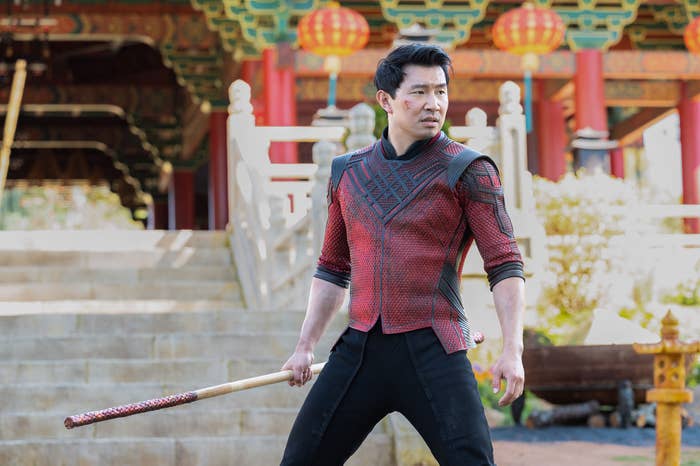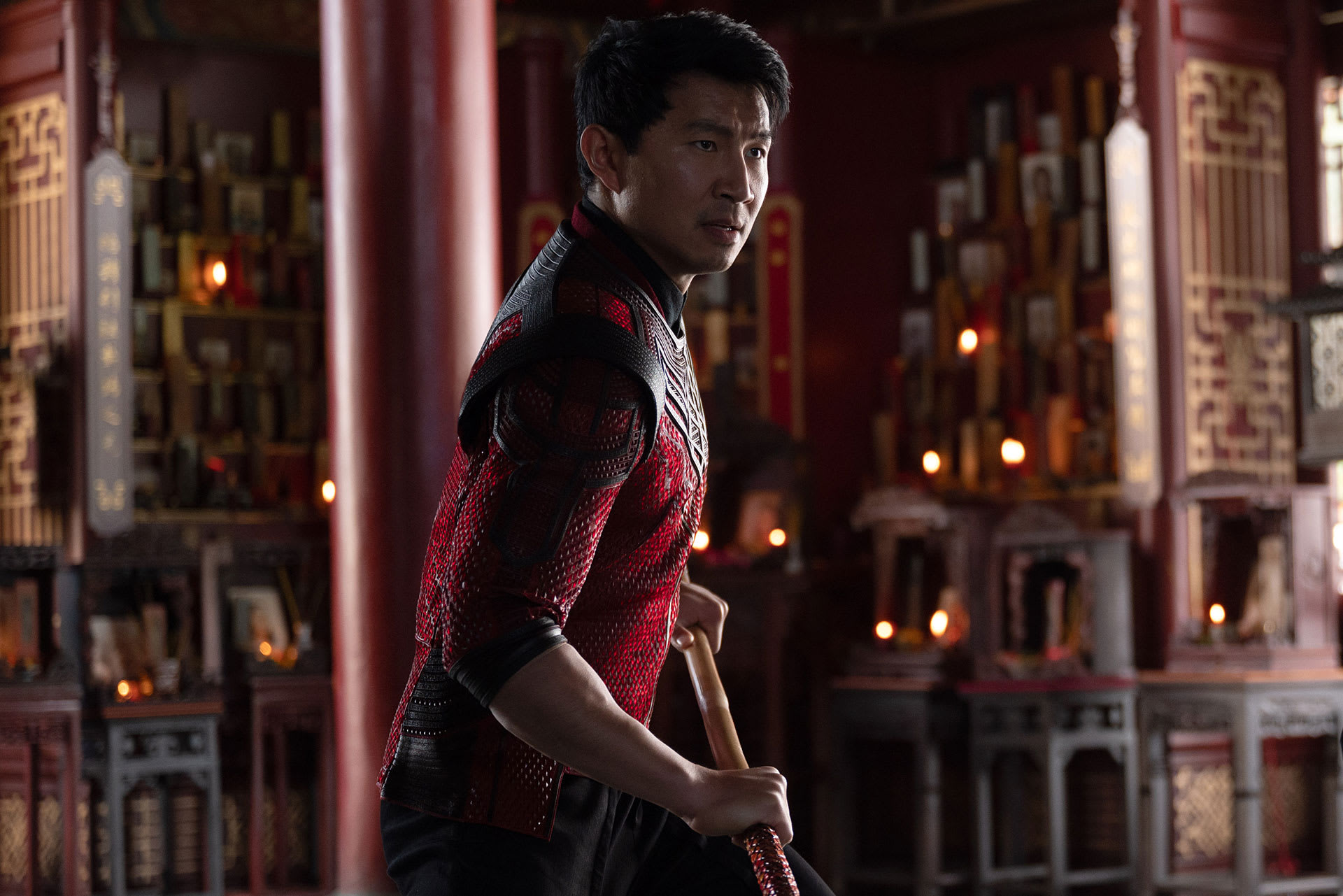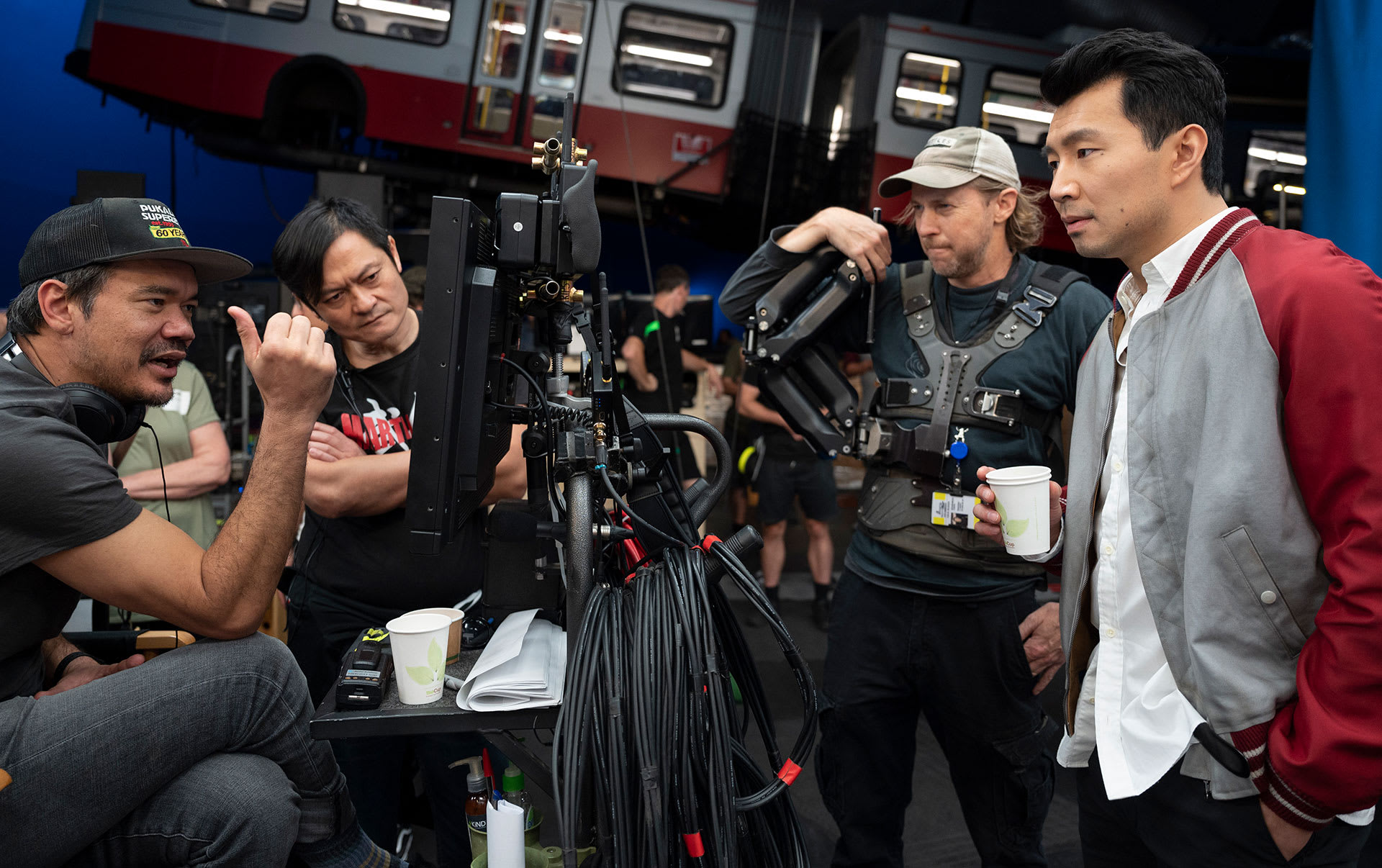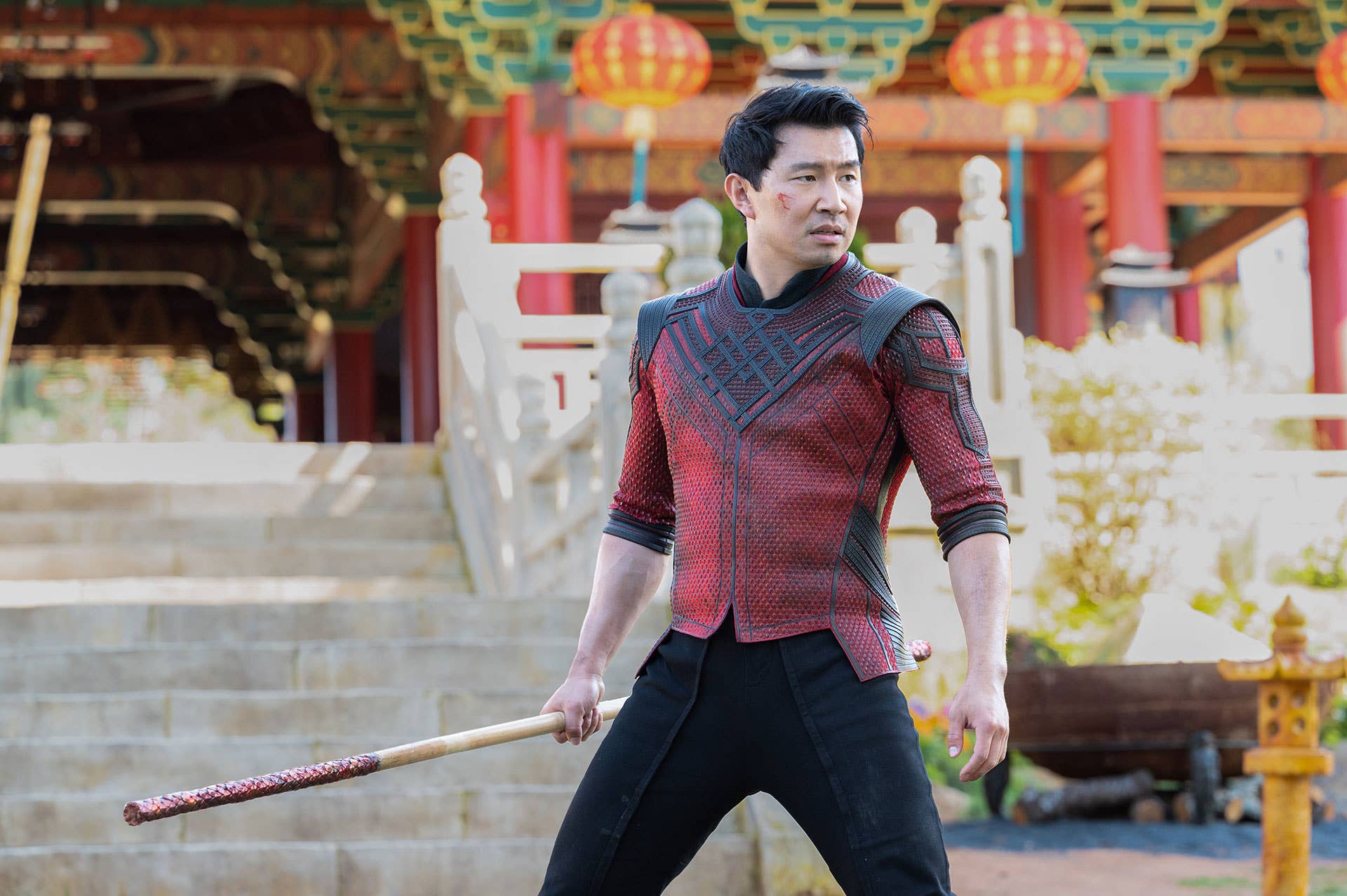
One thing about Simu Liu: he will never shy away from talking that talk.
Last month, the Chinese-Canadian star of Marvel’s Shang-Chi and the Legend of the Ten Ringsappeared to put Disney CEO Bob Chapek on blast for referring to the film’s release as an “interesting experiment” during the company’s Q3 earnings call.
“We are not an experiment. We are the underdog; the underestimated,” Liu, who plays the movie’s titular protagonist, wrote on social media. “We are the ceiling-breakers. We are the celebration of culture and joy that will persevere after an embattled year. We are the surprise. I’m fired the f**k up to make history on September 3rd; JOIN US.”
You can’t blame the guy for being a bit impassioned. After all, if you were playing the first-ever Asian-American superhero in the Marvel Cinematic Universe, you’d probably want to speak that shit too. Especially when you’re speaking for an entire community of people who’ve been ignored in pop culture and victimized in public.
“And so, I grew up ashamed to be Asian. I just hope that kids watching this movie will be proud instead.”
When I tell Liu during our video chat that I, as an Asian Canadian myself, got positively amped watching Shang-Chi, which opens in theatres today, his eyes light up. Clearly, the 32-year-old actor’s spent some time thinking about how other Asians might receive the film. And for good reason.
“I think it would have made me feel proud of where I came from,” Liu says when I ask him how seeing an Asian superhero on the big screen would’ve impacted him as a kid. “I think it would have made me proud of my face, proud of my language, of my culture. And not having that meant that, you know, I kind of inherently knew that those things were ‘other.’ And those things weren’t desirable. And so, I grew up ashamed to be Asian. I just hope that kids watching this movie will be proud instead.”
Born in Harbin, China, Liu was brought up by his grandparents for the first five years of his life while his parents were studying at Queen’s University in Kingston, Ontario. Then, at the age of five, his folks whisked him away to the Toronto suburb of Mississauga, where he’d spend the rest of his childhood.
The transition to Canada was tough. He recalls bawling his eyes out at daycare because he couldn’t understand what anyone was saying to him. Just as difficult was witnessing his immigrant parents get belittled on the daily. In an article about anti-Asian racism Liu penned for Variety earlier this year, he recounts the blatant disrespect his mom and dad faced as foreigners. “I’ve heard people mock everything from their accent and their cooking to the shape of their eyes,” he wrote. “Of course, I’ve also heard the classic ‘go back to China’ more times than I can count.”
The significance of Shang-Chi being released at a time when anti-Asian hate crimes are surging across North America—and by as much as 717 percent in Vancouver alone—is not lost on Liu. “I think a lot of it comes from fear, a lot of it comes from ignorance, and I think it speaks to this general atmosphere in our society where people who look like us aren’t considered Canadian or aren’t considered American,” he tells me of the rise in violence. “Even though we are. Even though we pay our taxes, we live here, you know, we consider this place home. I hope that movies like this, movies like Crazy Rich Asianslike Minari, The Farewell, this growing lexicon of Asian or diasporic Asian films can contribute to this conversation and can shift the narrative and say, yes, we actually do belong. We’ve been here for over a hundred years and have been living here and have our culture and have our distinct foods and all of that. And, you know, now we have our own superhero.”

Of course, giving Asian-Americans and Asian-Canadians just any old superhero is not enough—it’s gotta be one who looks like them and talks like them. So the creators of Shang-Chi endeavored to make the film as nuanced and authentic as possible. That began with recruiting actual Asian-Americans to the writers’ room; Destin Daniel Cretton, who’s half-Japanese, directed and co-wrote the movie, while Andrew Lanham, who’s of Chinese descent, co-wrote the screenplay. The result is a movie with relatable characters who feel like real-life, modern-day Asian-Americans, sans any ancient proverbs or goofy mustaches.
The team made some revisions to the origin story of Shang-Chi, who made his Marvel Comics debut in the ’70s. The film version of Shang-Chi is still the son of a Chinese criminal overlord, but this time, his flawed father (played by Hong Kong icon Tony Leung) is much more complex and layered than the source material’s Fu Manchu, an embarrassingly problematic character rife with yellow-peril stereotypes.
“Every community deserves to see themselves represented in that way. Every community should have a superhero. And the truth is, for many of us in the Asian community, we didn’t grow up with that.”
Shang-Chi spends his youth in China being trained as an assassin by his pops, but after refusing an assignment, he flees to San Francisco, where he lives under the name “Shaun” and works as a parking valet. That parental pressure to follow tradition and excel at all costs is immediately recognizable to most children of immigrants, including Liu himself, who was pushed to attend business school and eventually landed a coveted position at a big accounting firm. But after getting laid off less than a year into the job, he began trawling Craigslist for acting roles. A few gigs as an extra (including in Guillermo del Toro’s Pacific Rim and a Fall Out Boy music video) led to a breakout role on Kim’s Convenience, the CBC’s beloved sitcom based on a Korean-Canadian family.
“I mean, how much time do you have?” Liu chuckles when I ask what American cinema has gotten wrong about Asian characters in the past. “You know, I think Hollywood has had a lot of trouble differentiating between the different types of Asians all over the world, whether it’s native Asians or diasporic Asians, like you and I, who grew up in a different environment than their parents did, who maybe speak a different language than their parents. All of the cultural nuances and the traumas and the complexities that come with being a third-culture kid, these are all nuances that the quote-unquote system of Hollywood is just starting to become privy to.”

For Shang-Chi, Marvel was careful to avoid racebending the cast, a trend that’s been all too common in movies based on Asian stories over the years (shout-out Scarlett Johansson in Ghost in the Shelland the white dude who played Goku in Dragonball Evolution). Awkwafina, Michelle Yeoh, Meng’er Zhang, and Fala Chen play supporting roles. But it’s the people controlling the narratives who truly make the story speak to the Asian immigrant experience. Earlier this year, Liu griped publicly about Kim’s Convenience’s “overwhelmingly white” writers’ room, who failed to draw on the lived experiences of the show’s Asian-Canadian cast.
“What needs to change, really, is that we need better representation behind the camera,” Liu stresses. “We need better representation among the people who tell the stories or the people who greenlight the movies. We need perspectives. We need lenses that are authentic, because without that, you cannot have an authentic character.”
There’s, of course, plenty of kung fu in Shang-Chi, but it’s the film’s subtle moments that will resonate most with third-culture kids: the way Shaun takes off his shoes before entering his bestie Katy’s family home, or the way he shows respect to his elders. Obviously, his character is also a massive karaoke fan. “Oh, it’s gotta be Aladdin, ‘A Whole New World,’” Liu says when asked for his own go-to song. “Best done with a partner, of course, but always a crowd favourite. Also, Eminem, ‘Lose Yourself.’”

Sure, you might say, an Asian superhero is nice and all, but what’s it really going to change? Is it going to stop Asian hate and cease the suffering of an invisible minority overnight? Well, no. But what it will do is help the Asian community feel seen at a time when we need it most. Besides escapism, it will provide us with a voice. And who better than Simu Liu to speak up for us?
“You know, I was watching the Tokyo Games earlier this year and watching the way my friends reacted to the medals and just that sense of pride whenever someone from someone’s home country stood on that podium,” Liu shares. “It was just so incredible. It really felt like that was a victory for the entire community. And I feel like it’s kind of the same way with superheroes. Like, we represent this kind of hope, you know? [This] inspiration and responsibility. And every community deserves to see themselves represented in that way. Every community should have a superhero. And the truth is, for many of us in the Asian community, we didn’t grow up with that. We didn’t grow up in any sort of meaningful representation in media apart from, you know, Jackie Chan, Jet Li, Bruce Lee. But, of course, that was different still, because it always played to this narrative of the foreigner from the East. And that was very much not us. We grew up speaking English and drinking Tim Hortons and all that stuff. So it’s just an incredible moment for representation. It’s an incredible moment to be seen too, you know? And to be able to see yourself reflected back on screen. And we’re very happy that we’re able to do that.”


